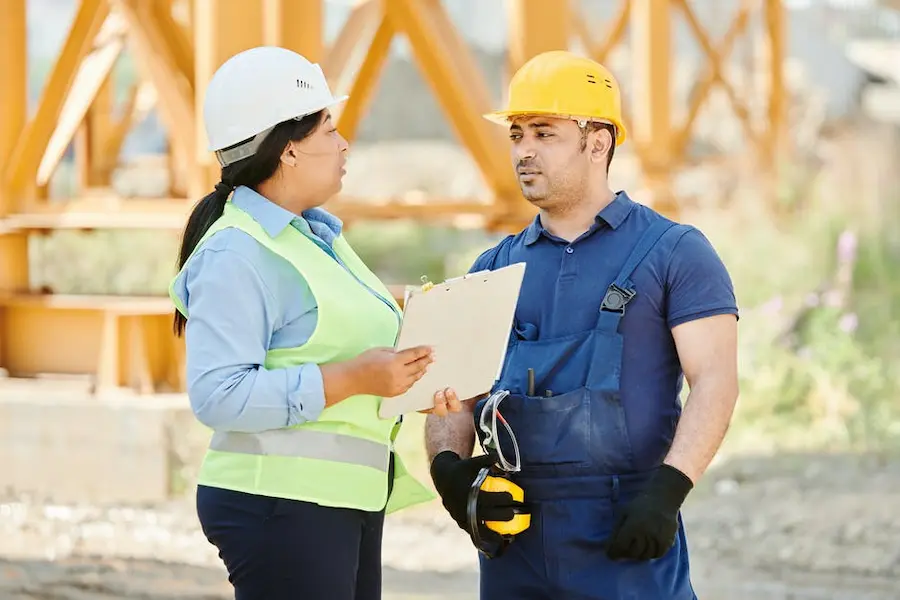Government buildings are never just buildings. They’re power symbols, policy hubs, and often, the face a nation shows to the world. That means building them isn’t just about concrete, steel, and schedules—it’s about diplomacy, discretion, and deep cultural intelligence.
Table of Contents
Diplomatic Coordination in International Government Construction
In global construction, especially on high-stakes government projects, diplomacy matters just as much as engineering. It’s not unusual for multiple countries to be involved in funding, permitting, or even co-occupying a single site. Think of embassies or joint consulates—projects where one misstep can ripple into an international dispute. A capable international construction company knows how to navigate these waters with calm, tact, and structure. Building in these spaces requires working with foreign ministries, international planning boards, and even defense departments. It’s less about hard hats and more about handshake agreements that keep everyone aligned.
This level of diplomatic coordination also stretches into how suppliers and subcontractors are selected. If a global construction project sources materials or labor from politically sensitive regions, a miscalculated decision can trigger delays—or worse, backlash. A good construction partner isn’t just fluent in building codes; they understand how to read between the geopolitical lines and adjust procurement accordingly. That’s where success really takes shape: not just in the structure, but in the stability behind it.
Expertise in Compliance with Global and Local Regulations
Government construction demands a legal playbook that’s as thick as the building plans. A local permit might be easy to secure—but when you’re working across borders, the rules get tangled fast. Local building codes, international labor standards, environmental protection laws, and national security regulations all intersect. Each region—whether it’s in the Middle East, Asia, Europe, or the U.S.—adds a new layer of red tape. And it’s not optional. Miss one detail, and the entire site could be shut down.
But the top international construction companies don’t just follow regulations—they anticipate them. They map out compliance at the bidding stage, plan audits into project timelines, and work directly with agencies to ensure there are no surprises. This proactive mindset is essential, especially in countries where laws shift quickly or are influenced by regional politics. Government clients expect certainty. That means no last-minute adjustments, no questionable interpretations. Just precision and peace of mind.
Managing Sensitive Political Environments in Embassy Projects
Embassies aren’t just buildings; they’re sovereign ground. That makes constructing them an incredibly delicate operation. Every brick placed on an embassy site must align with both the host nation’s rules and the home country’s standards. At the same time, there are security protocols that override even local regulations. Global construction professionals working on these sites must undergo background checks, clearance screenings, and adhere to strict, often classified, design guidelines.
And politics doesn’t pause for construction. Political tensions can rise mid-project, leading to new restrictions, revised access to materials, or heightened scrutiny. A seasoned international construction company brings with it the calm to continue building even as politics shift around the project. They know how to communicate with both governments simultaneously, adapt to policy changes, and maintain site integrity. It’s this adaptability—quiet, steady, and deeply strategic—that often determines whether an embassy project crosses the finish line on time.
Effective Stakeholder Engagement Beyond Technical Specifications
Technical precision builds the structure. But relationships build the project. In large-scale government construction, it’s never just about the blueprints. Stakeholders can include public officials, regional planning boards, security agencies, and local communities—all with different expectations. Effective global construction teams know how to bring everyone to the table, even when those parties speak different technical languages or have conflicting priorities.
These projects often unfold in stages, and with each phase comes a new round of approvals, concerns, and budget checks. Without solid stakeholder engagement, even the best designs can stall. That’s why construction leaders skilled in relationship management can unlock paths that technical documents alone can’t. They listen, adapt communication styles, and present data in ways that are meaningful to each group—whether it’s a prime minister or a local housing board. It’s not about selling the idea—it’s about making people feel part of it.
Cultural Awareness in High-Profile Government Contracts
Cultural fluency is the unsung hero of international construction. A misstep in a groundbreaking ceremony, an overlooked color on a flag, or a tone-deaf architectural element can offend and derail an entire government contract. Construction firms operating across Africa, the Middle East, and Asia must treat every cultural cue as important as a structural beam. Because in many cases, they are.
Cultural sensitivity doesn’t only happen in ceremonies or reports—it shows up in labor management, worker accommodations, and even food service on-site. An experienced global construction company ensures its teams respect local customs, work hours, and dress codes. They create environments that foster trust, not tension. And that’s what allows projects to move smoothly—because they aren’t just built in foreign countries, they’re built with them.
Strategic Negotiation Skills for Complex International Projects
Behind every government contract is a negotiation table that’s seen hours of strategy, compromise, and recalibration. From project scope to material sourcing, global construction deals are rarely straightforward. Land rights may change mid-negotiation. Security requirements might escalate. Budgets fluctuate with currency shifts. And the only way through is with sharp, practiced negotiation skills.
International construction companies that succeed in this arena don’t rely on scripts. They bring context, data, and regional knowledge into every meeting. They balance ambition with realism and know when to hold firm or pivot. That’s why governments trust them—they’re not just vendors, but advisors who understand the stakes. In the end, the handshake is as foundational as the site prep.

